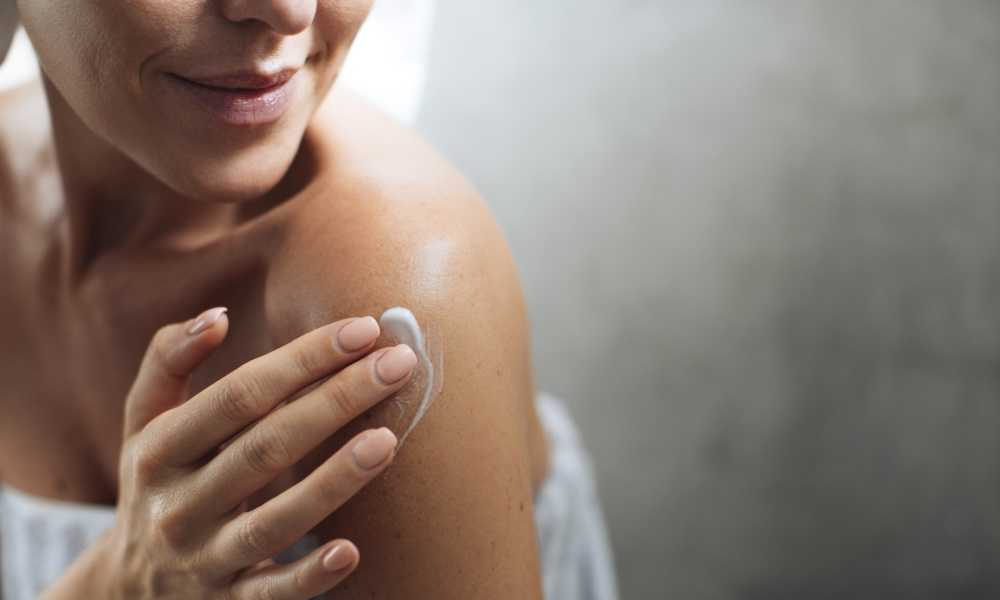Body Lotion Basics: What Does Body Lotion Do to Your Skin?
The skin is the largest of all the organs that make up a human body, which is why it’s quite strange that it is often overlooked as an organ of the body at all. In fact, your skin is a vital organ that protects you from infection, and you should take care of it just like you would take care of any other organ in your body.
For example, you would want to look after your heart by exercising, not eating too much saturated fat, and reducing stress.
You may also be kind to your liver by not drinking too much alcohol. Just like any other organ in your body, if you don’t look after your skin properly, then over time, you may find yourself with an unhealthy organ, which could lead to discomfort and/or pain.
What does lotion do to your skin? To gain a better understanding of the role of body lotions in your daily routine, we start by looking at the skin in more detail and then look at what body lotion is, and how it helps keep your skin healthy.

Skin School
Your first thought may be that your skin’s main job is to keep everything in, but in fact, its role is much more complex than that. One astounding fact about the skin is that it completely regenerates itself approximately every 27 days. Let’s find out why this is so by looking at its many functions below.
Skin Functions
- Protection
Your skin is your natural first line of defense in the world. One of its most important roles is to act as a barrier between you and the things that may harm you. Protecting you from moisture, sunrays, infection, and germs, as well as the cold, the skin is one of the most important parts of the body.
- Regulation
Your skin also enables your body to regulate itself in terms of temperature. The sweat glands found in your skin allow your body to cool itself down and help balance fluid levels in the body. It is also responsible for harnessing vitamin D from the sun and for peripheral circulation.
- Sensation
The abundance of nerve cells in your skin detect and communicate changes in the external environment to you. Since they are responsible for sensations of hot and cold, as well as touch and pain, damage to the skin can result in loss of sensation.

Skin Layers
The skin is made up of various components including water, lipids, protein, as well as different chemicals and minerals. It consists of three layers known as the epidermis, dermis, and hypodermis layers.
- Epidermis
Many layers of cells work together to form the outermost skin layer called the epidermis. The epidermis layer provides a waterproof barrier between you and world beyond. Without it, we’d swell up with water everytime we bathed, or it rained!
Sebaceous glands in the dermis layer of your skin produce sebum, which is an oily/waxy substance that gives it this extraordinary ability. When the epidermis is healthy and intact, it is also more difficult for bacteria and viruses to enter the body.
- Dermis
This skin layer contains your mechanoreceptors and thermoreceptors, which provide you with your sensations of touch and heat, respectively. It also is where your sweat glands, hair follicles, sebaceous glands, lymphatic glands, and blood vessels are housed.
- Hypodermis
The hypodermis layer of skin is the third and final layer of the skin organ. This layer is mostly used for fat storage.
So, now you know a bit more about what is happening with this organ, what does lotion do to your skin?
Learning About Lotions
In combination with eating a balanced diet, a proper skincare routine should be established to maintain healthy skin. Using a body lotion to moisturize your skin is one of the best ways you can help keep your skin hydrated.
Moisture from your body is constantly lost to your external environment via transdermal water loss (through processes of evaporation and diffusion). Using harsh cleansers can also dry out the skin by upsetting the natural balance of your skin’s water content by removing lipids.
When your skin becomes too dry, then it will crack and peel. This leaves it even more prone to water loss and will eventually cause you great discomfort or pain if left untreated.
Lotions work almost exclusively on the epidermis layer. Containing mostly water to replenish your skin’s water content, and also oils,wax, or grease to create a barrier to lock that water to your skin, they prevent moisture from leaving your body so quickly. Some lotions also come with added ingredients such as vitamins and minerals, which can be absorbed into your skin to nourish it further.
What Does Lotion Do to Your Skin: Summary
Your skin is a complex and important part of your body, and you should take care of it! By acting as a barrier, lotion can help reduce the amount of transdermal water loss you experience as well as help to replenish much-needed moisture. Applying body lotion to your skin should be a part of your daily routine if you wish to maintain healthy, nourished and youthful-looking skin.

